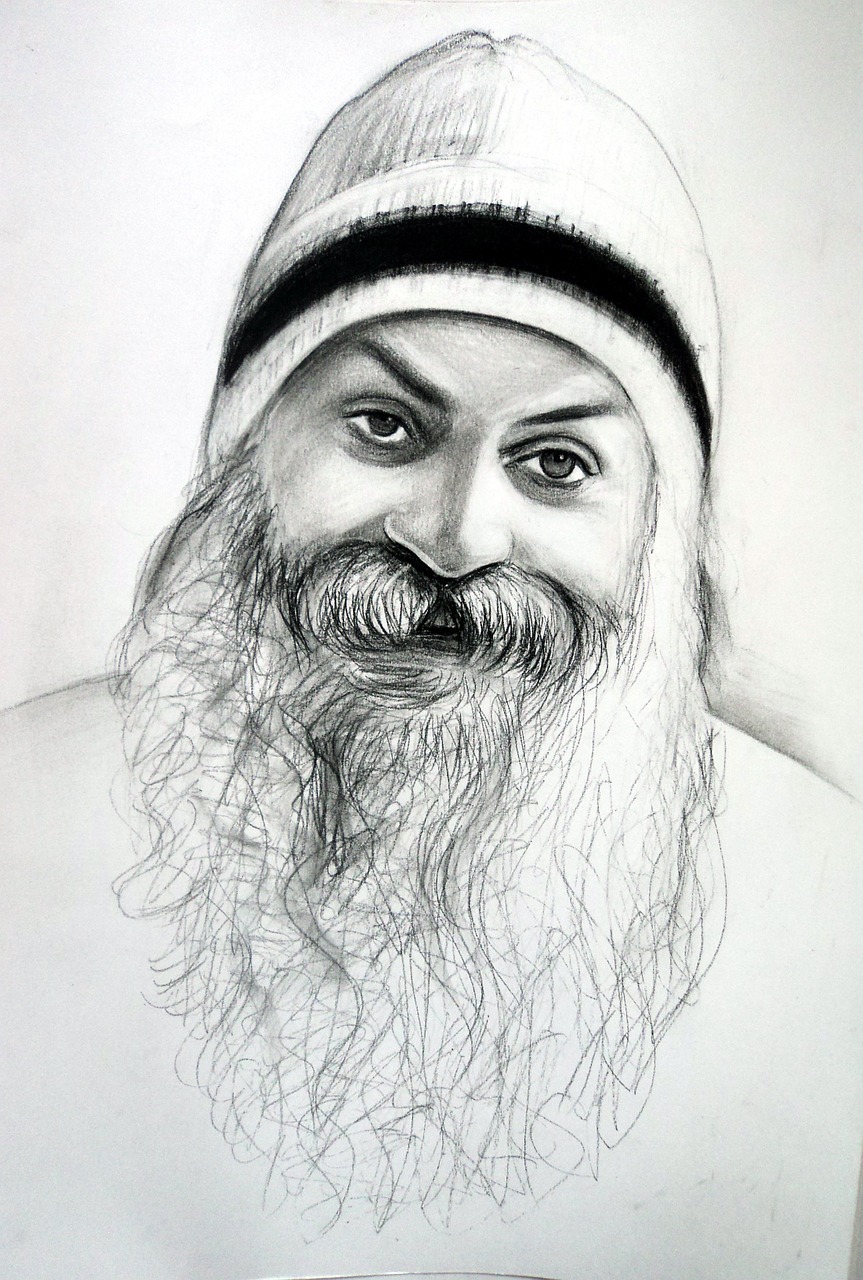Osho: How to Stop Caring What Other People Think of You

Before diving in, please note: This post is for informational purposes only. If you’d like to know more about how we approach topics, feel free to check out our friendly Disclaimer Page.
Hey there, amazing readers! 🖐️ Just a quick note: yes, we know there are a lot of ads here. Trust us, we get it—it’s not the prettiest look, but they help us keep this blog alive and kicking. Those pesky little ads cover the costs of all the behind-the-scenes magic, from hosting and tech stuff to creating content we hope you’ll love.
We’re committed to delivering quality posts, and your support (even just sticking around despite the ads) means everything to us. So, bear with us, and thanks for helping us keep the good vibes rolling. Now, on to the fun stuff! 😉
TRANSLATE BUTTON AT THE END OF THE ARTICLE
In a world dominated by the constant scrutiny of social media, societal norms, and the ever-present fear of judgment, the pursuit of self-acceptance and the liberation from the opinions of others has taken on greater importance than ever before.
At the heart of this quest lies the teachings of one of the most remarkable and enigmatic spiritual figures of the 20th century, Bhagwan Shree Rajneesh, universally known as Osho.
In this extensive exploration, we embark on an in-depth journey into the life and teachings of Osho to understand how we can emancipate ourselves from the oppressive burden of caring about what others think.
The Enigmatic Life of Osho
To fully appreciate the profundity of Osho’s teachings on self-liberation, it is crucial to delve into the extraordinary life he led.
Born on December 11, 1931, in India, Osho’s journey towards enlightenment was nothing short of exceptional.
His early years were marked by an insatiable hunger for knowledge and spirituality.
He earned a master’s degree in philosophy and embarked on an unrelenting quest for wisdom, which eventually led him to become a spiritual teacher.
However, Osho’s teachings were not without controversy.
He was renowned for his dynamic and often unconventional approach, which drew fervent followers and equally ardent critics.
His unconventional lifestyle, including his extensive collection of Rolls-Royce cars and his spiritual commune in Pune, India, added layers of intrigue to his persona.
Understanding the Roots of the Fear of What Others Think
Before we can fully internalize Osho’s wisdom on breaking free from the opinions of others, we must first understand why we care so deeply about what people think.
This deep-seated concern can be traced to a complex interplay of social, psychological, and evolutionary factors.
1.
Social Conditioning: From an early age, we are conditioned to seek approval and validation from our caregivers and peers.
This need for acceptance becomes deeply ingrained in our psyche, influencing our behaviors and decisions throughout our lives.
2.
Fear of Rejection: The fear of rejection or social exclusion is a primal instinct.
Historically, being part of a group meant better odds of survival.
This instinct still lingers in our modern society, compelling us to conform and seek approval.
3.
Self-Worth and Identity: Many individuals tie their self-worth to external validation.
Our sense of identity often relies on how we are perceived by others, leading to a fragile sense of self.
4.
Comparison Culture: In today’s age of social media, the constant exposure to carefully curated lives and seemingly perfect individuals exacerbates our need for validation.
We find ourselves constantly comparing to others, further fueling our insecurities.
Osho, the perceptive spiritual leader, recognized that these societal constructs and fears were imprisoning us in a cycle of conformity and anxiety.
He offered a path to break free from these chains and embrace genuine self-liberation.
Osho’s Teachings on Authenticity and Liberation
Osho’s philosophy is deeply rooted in authenticity and self-discovery.
He believed that true liberation comes from within and can only be achieved by shedding the layers of societal conditioning and pretense.
Here are the core principles of Osho’s teachings on authenticity:
1.
Self-Acceptance: Osho emphasized the importance of unconditionally accepting oneself.
He believed that when you fully accept your flaws and imperfections, the opinions of others lose their power over you.
2.
Living in the Present: Osho encouraged living in the present moment.
He believed that by being fully present, you can escape the bondage of past judgments and future anxieties.
3.
Meditation and Awareness: Meditation, according to Osho, is the path to self-awareness and liberation.
Through meditation, you can silence the external noise and reconnect with your true self.
4.
Detachment from Ego: Osho taught that the ego is the root of our concerns about others’ opinions.
By transcending the ego and realizing that it’s a social construct, we can free ourselves from its grip.
Practical Steps to Break Free from the Fear of Others’ Opinions
Embracing Osho’s wisdom isn’t just about theoretical concepts; it’s about actionable steps to liberate yourself from the opinions of others.
Here’s a comprehensive guide:
1.
Self-Reflection: Initiate your journey by examining why you care so deeply about others’ opinions.
What fears and insecurities underlie this need for approval?
2.
Embrace Self-Acceptance: Work on unconditionally accepting yourself as you are, with all your imperfections and quirks.
Understand that nobody is perfect, and that’s perfectly okay.
3.
Mindfulness and Meditation: Engage in mindfulness practices and meditation to foster self-awareness and detachment from the ego.
These practices will help reduce the significance of external opinions.
4.
Choose Supportive Relationships: Surround yourself with people who genuinely support and uplift you.
Let go of toxic relationships that feed your insecurities and doubts.
5.
Set Healthy Boundaries: Learn to say no and set clear boundaries to protect your well-being.
This not only safeguards your emotional health but also reinforces your self-worth.
6.
Cultivate Self-Expression: Explore self-expression without the fear of judgment.
This can take the form of art, writing, or any creative outlet that allows you to authentically express yourself.
7.
Seek Professional Help: If the fear of others’ opinions is significantly impacting your mental and emotional well-being, consider seeking guidance from a mental health professional.
They can provide tailored strategies to help you overcome this fear.
Conclusion: Embrace Your True Authentic Self
In the relentless pursuit of self-liberation and the quest to stop caring about what other people think of you, Osho’s teachings serve as a beacon of wisdom and guidance.
His philosophy centers on embracing your authentic self, shedding societal conditioning, and living in the present moment.
The path to self-liberation is not a quick fix; it is a transformative journey that requires constant self-awareness and a deep commitment to self-acceptance.
As Osho once said, “Don’t be concerned with other people’s opinions.
Be yourself, live your life, and let the world adjust.”
By embracing Osho’s teachings, you embark on a profound and liberating journey toward genuine self-liberation, where the opinions of others hold no power over you.
In this journey, you can discover the true essence of who you are and live a life of authenticity and inner peace.
Frequently Asked Questions
1.
Who was Osho, and what were his teachings about caring about others’ opinions?
Osho, also known as Bhagwan Shree Rajneesh, was a spiritual teacher who emphasized self-acceptance, living in the present, and detaching from the ego.
His teachings revolved around breaking free from the need for approval and validation from others.
2.
Why do people care so much about what others think of them?
People care about what others think due to social conditioning, the fear of rejection, self-worth tied to
external validation, and the pervasive comparison culture in our modern society.
3.
How can one practice self-acceptance, as Osho suggested?
Self-acceptance can be practiced by acknowledging your flaws and imperfections, understanding that nobody is perfect, and learning to love and embrace yourself as you are.
4.
What role does meditation play in Osho’s teachings on authenticity?
Meditation is a central aspect of Osho’s teachings.
It helps individuals become more self-aware, detach from the ego, and find inner peace, reducing the significance of external opinions.
5.
Are there practical steps to stop caring about others’ opinions?
Yes, practical steps include self-reflection, mindfulness and meditation, surrounding yourself with supportive relationships, setting healthy boundaries, cultivating self-expression, and seeking professional help when needed.
These steps can help you overcome the fear of what others think and embrace your authentic self.

The Enlightenment Journey is a remarkable collection of writings authored by a distinguished group of experts in the fields of spirituality, new age, and esoteric knowledge.
This anthology features a diverse assembly of well-experienced authors who bring their profound insights and credible perspectives to the forefront.
Each contributor possesses a wealth of knowledge and wisdom, making them authorities in their respective domains.
Together, they offer readers a transformative journey into the realms of spiritual growth, self-discovery, and esoteric enlightenment.
The Enlightenment Journey is a testament to the collective expertise of these luminaries, providing readers with a rich tapestry of ideas and information to illuminate their spiritual path.
Our Diverse Expertise 🌟
While our primary focus is on spirituality and esotericism, we are equally passionate about exploring a wide range of other topics and niches 🌍📚. Our experienced team is dedicated to delivering high-quality, informative content across various subjects ✨.
To ensure we provide the most accurate and valuable insights, we collaborate with trusted experts in their respective domains 🧑🏫👩🏫. This allows us to offer well-rounded perspectives and knowledge to our readers.
Our blog originally focused on spirituality and metaphysics, but we’ve since expanded to cover a wide range of niches. Don’t worry—we continue to publish a lot of articles on spirituality! Frequently visit our blog to explore our diverse content and stay tuned for more insightful reads.





